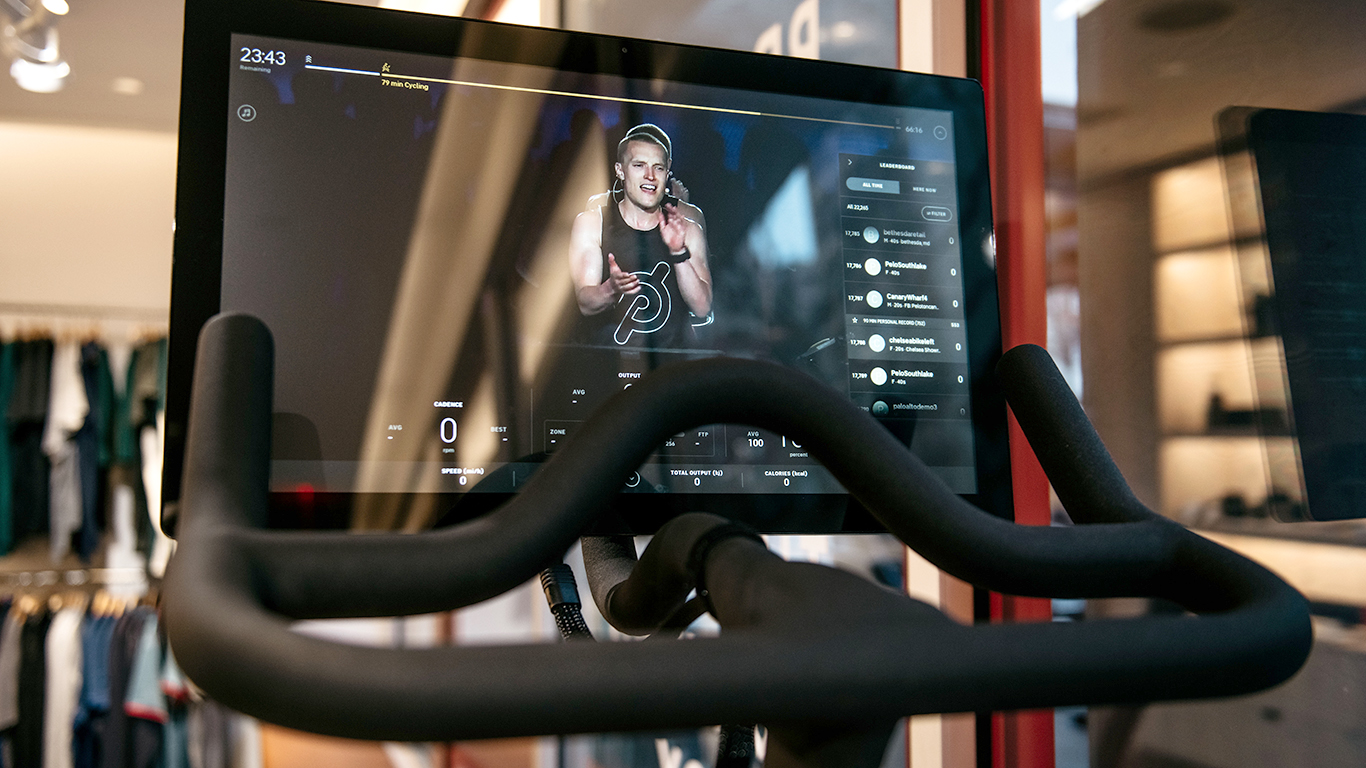Investing
Buy, Sell or Hold: Planet Fitness, Peloton, Xponential Fitness, or Life Time

Published:

The pandemic sent the personal fitness market on a roller coaster ride. With the lockdowns forcing gyms and fitness centers to close, home fitness equipment sales soared. The reopening of the economy caused a pole reversal.
Four years on, new trends are emerging. Because staying fit and healthy will never not be a good idea, there are plenty of investment opportunities in the space.
Between brick-and-mortar gyms; online and virtual exercise classes; and lifestyle, experiential centers, consumers and investors have many options available to them.
Below are some of the most popular personal fitness stocks on the market. Not every one is worth your investment dollars, though. Let’s take a closer look to see which might be best to get your portfolio fit and trim.

The lockdown phase of the pandemic was a train wreck for Planet Fitness (NASDAQ:PLNT). Although being healthy was one of the best defenses against Covid, its gyms were forced to close and cratered what had been a remarkable growth story.
Planet Fitness stock soared 450% from its 2015 IPO until the global health crisis, but then lost two-thirds of its value in the span of a month. The fitness stock has worked hard to claw its way back. Shares have tripled in value from those pandemic lows, though it remains 6.5% below where it traded prior to the outbreak.
Planet Fitness is also on a firm financial footing today. Revenue is up 8% in 2024 after having jumped over 14% in 2023. Profitability is even better, up 20% year-to-date following a strong 33% rise last year.
The stock is a bit pricey at 29 times earnings estimates and six times sales, so waiting for a better price is best. But Planet Fitness is a stock worth watching for the long haul.

What Planet Fitness lost during the pandemic, Peloton Interactive (NASDAQ:PTON) gained. Because of gym closures, the at-home, connected fitness craze took off. Being able to workout with a personal trainer online was the optimal solution when some states were banning people from even going to the beach.
Peloton was the classic case of being in the right place at the right time. Although its equipment was very expensive, sales rocketed as millions signed up for its virtual classes. PTON stock surged to $167 per share. The reopening of the economy, however, was a death knell for its business. Sales cratered and subscription membership tumbled. Its stock lost 95% of its value, and recently was as low as $2.70 per share.
Yet Peloton’s recent fiscal fourth quarter earnings report revived its stock. Although revenue barely inched 0.2% higher to $644 million, it was the first quarter in over two years it saw sales growth. PTON shares have doubled off their lows.
But Peloton is not a growth business. It may have bought itself some breathing room, yet the connected fitness stock is a niche business at best and should be avoided.

Founded in 2017, Xponential Fitness (NASDAQ:XPOF) went public in the summer of 2021 to capture the demand for out-of-home fitness that exploded following the pandemic. Offered at $12 a share, XPOF stock peaked at $33 a share two years later before tumbling back down to $12 today.
Xponential franchises various fitness verticals including Pilates, indoor cycling, stretching, and yoga. The company says Club Pilates and CycleBar are the largest Pilates and indoor cycling brands, respectively.
However, federal investigators and the Securities & Exchange Commission are investigating whether the company misrepresented the health of its fitness brands to franchisees and that its CEO threatened physical harm to a franchisee. The executive was suspended and resigned. He was recently replaced by former Taco Bell CEO Mark King.
As someone intimately familiar with the franchise model, the new CEO looks like a good fit, but there remains too much uncertainty. Many of its verticals are small, while Pilates itself is shrinking. IBISWorld says industry revenue declined 1.7% last year and is expected to dip almost 7% this year, even as the number of Pilates businesses grow. Investors should also avoid Xponential Fitness stock.

Life Time Group Holdings (NYSE:LTH) is a provider of luxury fitness experiences to the well-to-do. Fairly unique among fitness clubs, Life Time does not actively market its athletic country clubs, preferring instead to allow word of mouth sell the business.
It has been a successful business model. It just released third quarter results showing an 18% increase in revenue and adjusted net income that surged 111% year-over-year. New memberships rose 5% while average revenue per center member rose nearly 13%. LTH stock also continues to climb, rising 70% so far in 2024.
While gyms, online fitness classes, and Pilates centers are subject to the vagaries of the economy, inflation, and interest rates, it’s not quite the same for the uber-wealthy looking to work out at an upscale country club. Because that gives Life Time Group a built-in buffer against recessionary pressures, it could be just the fitness stock to buy.
Thank you for reading! Have some feedback for us?
Contact the 24/7 Wall St. editorial team.